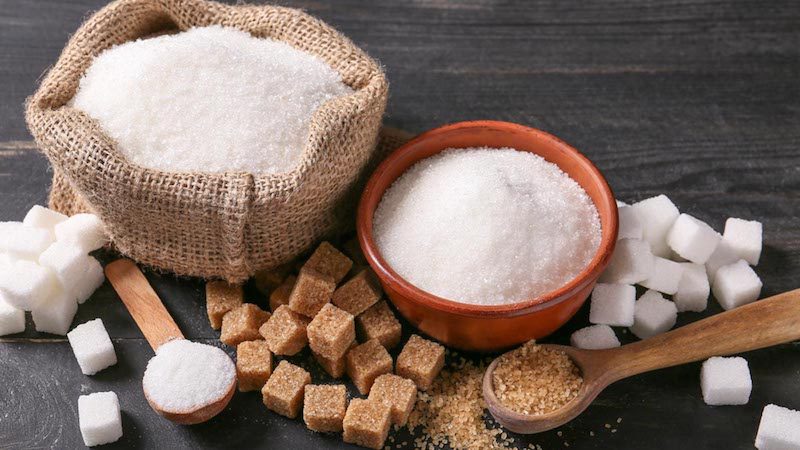Sugar, once a rare and treasured commodity, has become an omnipresent ingredient in our modern diet. From sugary beverages to processed foods, sugar lurks in various forms, seducing our taste buds and providing instant gratification. However, behind its sweet allure lies a bitter truth. Mounting scientific evidence highlights the detrimental impact of excessive sugar consumption on our health. In this article, we delve into the harmful effects of sugar, shedding light on the consequences of our insatiable sweet tooth.
Weight Gain and Obesity:
Excessive sugar intake is a significant contributor to weight gain and obesity. High-sugar foods and beverages are typically dense in calories but lack essential nutrients and fibre, leading to overconsumption. Moreover, sugar stimulates the release of dopamine in the brain, which can create addiction-like behaviour and cravings for more sugary treats. This vicious cycle of overconsumption and weight gain increases the risk of obesity, along with its associated health complications like heart disease, diabetes, and certain cancers.
Increased Risk of Type 2 Diabetes:
The rise in sugar consumption parallels the alarming increase in type 2 diabetes cases worldwide. Regularly consuming sugary foods and beverages causes rapid spikes in blood sugar levels, forcing the pancreas to produce more insulin to regulate glucose. Over time, the constant demand on the pancreas can lead to insulin resistance, a hallmark of type 2 diabetes. Limiting sugar intake is crucial in preventing this chronic condition and maintaining stable blood sugar levels.
Dental Problems:
Sugar and dental health have a bitter relationship. When we consume sugar, the oral bacteria present in our mouth convert it into acids that erode tooth enamel, leading to cavities and tooth decay. Frequent sugar consumption also promotes the growth of harmful bacteria, increasing the risk of gum disease. Poor oral health not only affects our smiles but also has broader implications on overall well-being, as it can contribute to systemic inflammation and increase the risk of cardiovascular disease.
Nutritional Deficiencies:
Excessive sugar consumption often goes hand-in-hand with a poor diet. People who consume high amounts of sugary foods and beverages often displace more nutrient-dense options, leading to deficiencies in essential vitamins, minerals, and fibre. This can compromise overall health and weaken the immune system, making individuals more susceptible to infections and chronic diseases.
Increased Risk of Heart Disease:
A diet high in added sugars has been linked to an increased risk of heart disease. Excessive sugar consumption contributes to several risk factors such as obesity, high blood pressure, inflammation, and dyslipidemia (abnormal blood lipid levels). These factors collectively raise the likelihood of developing cardiovascular problems, including heart attacks, strokes, and coronary artery disease.
Natose Stevia: A Healthier Alternative to Sugar
In a world where excessive sugar consumption has become a major concern for our health, finding healthier alternatives has become imperative. One such alternative that has gained significant popularity is Natose Stevia, a natural sweetener derived from the leaves of the Stevia plant. With its numerous benefits and absence of harmful effects, Natose Stevia presents itself as a superior choice over sugar. Let’s explore why Natose Stevia can be a better alternative:
Natural Sugar Substitute:
Natose Stevia is a natural sweetener that provides the sweetness we crave without the negative health implications of sugar. Unlike artificial sweeteners, which can have an unpleasant aftertaste, Natose Stevia offers a clean and satisfying sweetness, making it a desirable choice for enhancing the taste of food and beverages.
Calorie-Free:
One of the significant advantages of Natose Stevia is its virtually zero-calorie content. It offers a sweet taste without adding any calories to our diet, making it an excellent option for those watching their weight or managing conditions like obesity and diabetes. By substituting sugar with Natose Stevia, individuals can enjoy the sweetness they desire without the guilt or adverse effects on their health.
Low Glycemic Index:
The glycemic index (GI) measures how quickly a food raises blood sugar levels. Unlike sugar, which has a high GI, Natose Stevia has a negligible impact on blood glucose levels. This makes it a suitable choice for individuals with diabetes or those looking to maintain stable blood sugar levels. Natose Stevia provides a satisfying sweetness while helping to avoid the blood sugar spikes associated with sugar consumption.
No Side Effects:
Natose Stevia is generally well-tolerated and does not exhibit any known side effects when consumed in moderation. Unlike artificial sweeteners that have raised concerns about potential health risks, Natose Stevia has a long history of safe use and is approved as a food additive by various regulatory authorities around the world, including the U.S. Food and Drug Administration (FDA) and the European Food Safety Authority (EFSA).
Versatile Applications:
Natose Stevia is available in liquid concentrate form, making it convenient to use in various culinary creations. It can be easily incorporated into hot or cold beverages, desserts, baked goods, and savoury dishes, providing a natural and healthier sweetness without compromising on taste. Its versatility makes it an excellent option for individuals seeking to reduce their sugar intake without sacrificing flavour.
Conclusion

As the harmful effects of excessive sugar consumption continue to surface, seeking healthier alternatives has become essential. Natose Stevia emerges as a natural, calorie-free, and safe alternative to sugar. With its clean sweetness, low glycaemic index, and versatile applications, Natose Stevia offers a solution for those looking to reduce their sugar intake while still satisfying their sweet cravings. By embracing Natose Stevia as a healthier alternative, we can make positive strides towards better health and well-being.











